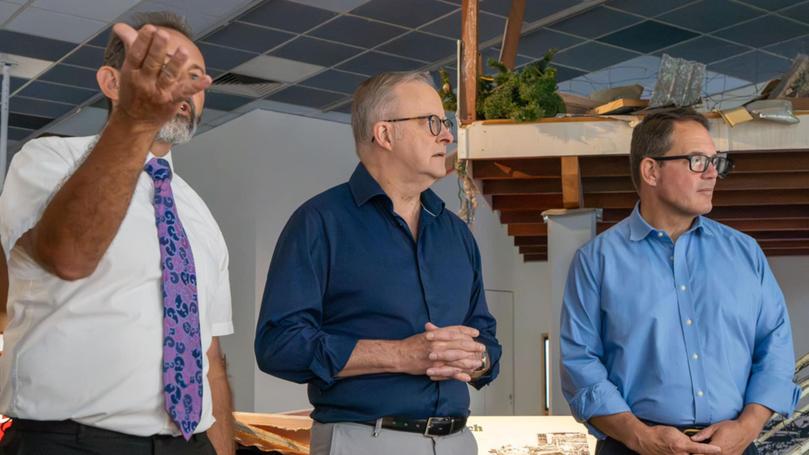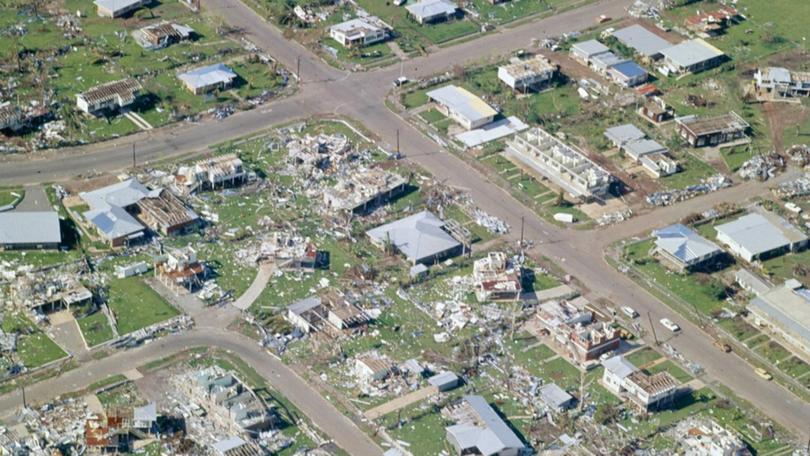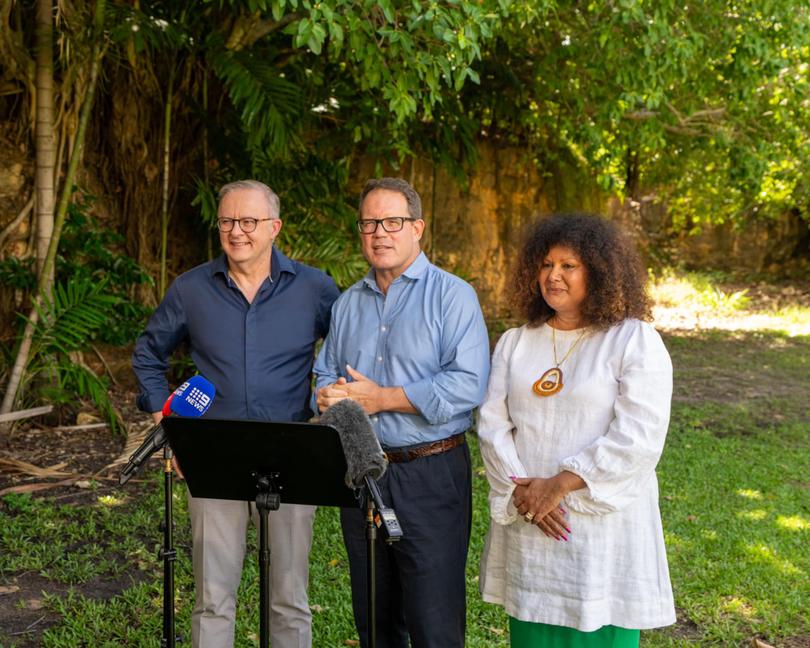Cyclone Tracy 50th Anniversary: Prime Minister visits Darwin on milestone of deadly disaster
The devastation of Cyclone Tracy during Christmas 1974 still resonates today, Prime Minister Albanese said on Tuesday as he paid tribute in Darwin to the victims of one of Australia’s worst natural disasters.

The devastation of Cyclone Tracy during Christmas 1974 still resonates today, Prime Minister Albanese said on Tuesday as he paid tribute in Darwin to the victims of one of Australia’s worst natural disasters.
The Prime Minister will spend Christmas Day in Darwin marking 50 years since Cyclone Tracy destroyed the city. This will be marked with events on Tuesday and a dawn service on Wednesday.
“This will be a difficult period where people will remember lost loved ones and remember as well the traumatic experience that they had,” Mr Albanese said.
Sign up to The Nightly's newsletters.
Get the first look at the digital newspaper, curated daily stories and breaking headlines delivered to your inbox.
By continuing you agree to our Terms and Privacy Policy.“Today and tomorrow, we will think of the families for whom every Christmas means revisiting that grief and trauma.”
On Christmas Eve 1974, 66 people lost their lives and almost 90 percent of Darwin’s homes were destroyed, as winds in excess of 200 kilometres an hour ripped through the city, tearing off roofs and collapsing walls.
Tens of thousands were left homeless and displaced in what is known as one of Australia’s worst natural disasters.
Fifty years on, it serves as a blueprint for cyclone preparedness and the nation’s disaster response.

After touring a 50th anniversary exhibition at the city’s Museum and Art Gallery of the Northern Territory, Mr Albanese recalled his own memories of the disaster as a young boy in Sydney.
“Like the rest of Australia and indeed the world, we were shocked by the images that came from Darwin with it being flattened on that evening of Christmas Eve into Christmas morning in 1974,” he said.
The Prime Minister also used the occasion to praise the resilience and response of the Australian people during the worst of times.
“It’s important that we reflect that we honour those who lost their lives. But it’s also important that it’s an opportunity for us to remind ourselves as a nation that at the worst of times, we see the best of the Australian character,” he said.
In the aftermath of the Darwin tragedy, individuals volunteered, people sent food and the Australian Defence Force helped to rebuild the community into a modern metropolis and “gateway into the fastest growing region of the world,” Mr Albanese added.
“We had people throughout Australia provide their support, their funding, and their commitment to the people who had suffered through this devastating cyclone,” he said.
“And time after time, that is part of the Australian story. We are so resilient,” added the Prime Minister.
“Out of that devastation, when you look at the impact that it had, it’s beyond belief that people stayed here or came back here and were determined to rebuild their lives together.”

The anniversary of a tragedy half a century ago also reminded Australians that the country is still prone to natural disasters, said Mr Albanese, urging people to heed warnings of high temperatures and bushfires this holiday season.
“Please listen to the warnings and the alerts which are out there. It is a difficult time over summer here in Australia,” he said, thanking the emergency and Fire and Rescue services who were tackling crises around the country.
Minister for Indigenous Australians Malarndirri McCarthy, Labor Senator for the Northern Territory, joining the Prime Minister on his Darwin visit, said it was important he led the country in acknowledging “the deep pain and trauma of that horrific time.”
Ms McCarthy said she would spend time with her family on Christmas Day as the community remembered their loss, and she also recognised the “Australian spirit” that pulled the country together in a crisis.

Opposition leader Peter Dutton said the story of Cyclone Tracy was “one of ruin and resurrection” and echoed the sentiment that the public response in the disaster’s aftermath epitomised the mettle of the Australian character that “never fails to emerge in misfortune.”
“The rebuilding and resurrection of the Northern Territory’s capital city over three years was a mighty mobilisation of national blood, sweat and tears — spurred on by the indomitable spirit of the people of Darwin.”
Lessons had been learned on how to improve building standards as well as on disaster planning and response, he said.
“On behalf of the Coalition, I pay my respects to those who lost their lives and the families who lost those dearest to them; I commend the survivors for their stoicism, including all attending memorial services,” he said.
“I thank all those Australians who responded to the catastrophe with courage and compassion; and I acknowledge the fortitude of the people of Darwin who forged their city anew.”

